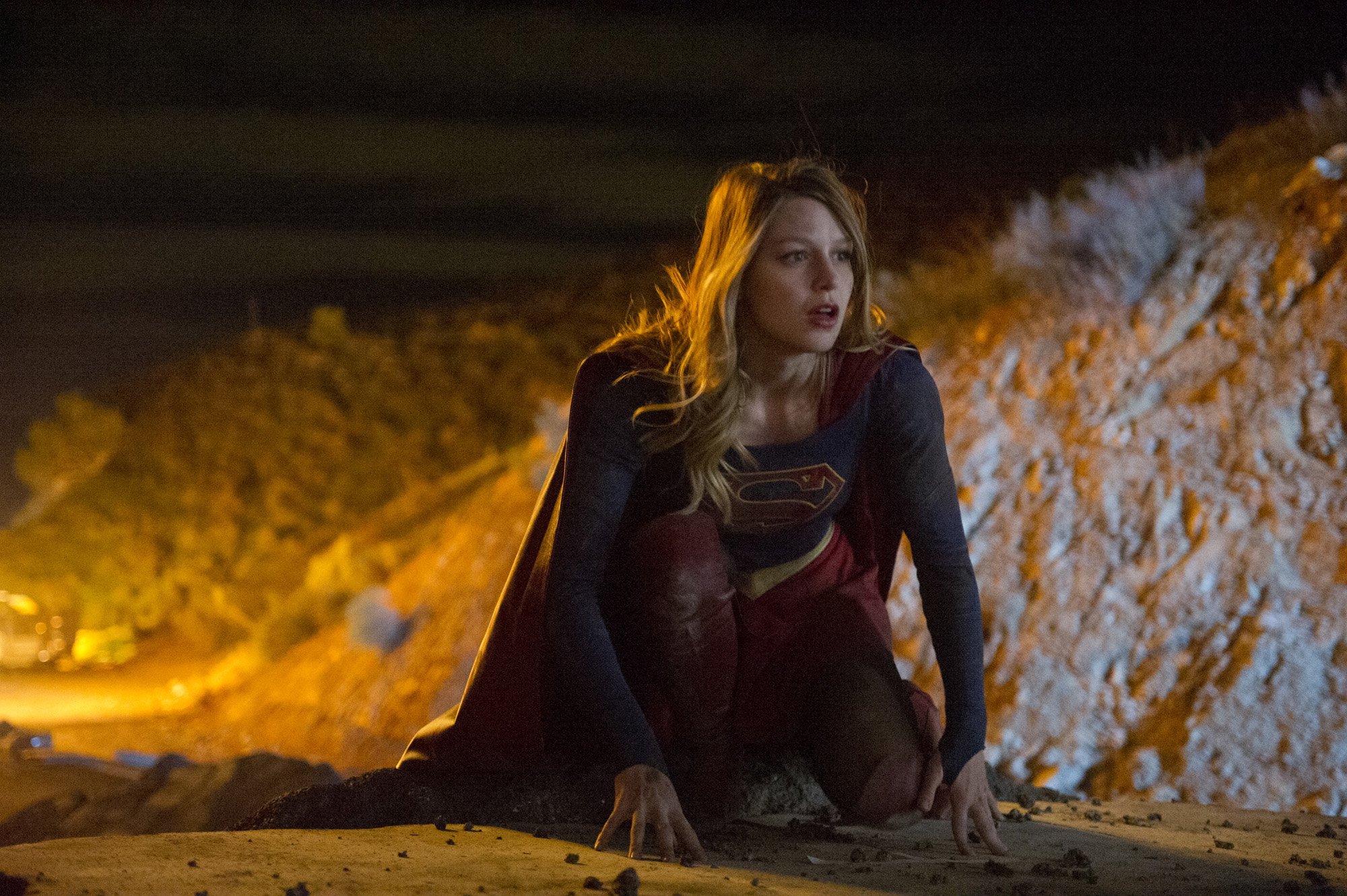Neither a bird a nor a plane, and most certainly not a man, “Supergirl” is here to take a stand against the boy’s club that is the world of modern comic book adaptation.
The show opens as Kara Zor-El escapes the doomed planet Krypton with her infant cousin, Kal-El. Her task: to protect the man who will one day grow up to save the world. But space travel is never without its difficulties, and Kara’s journey soon goes awry. So when she finally lands on Earth, it is 24 years after Kal, then established as Superman. Kara is thus sent to live a life with the lovely Danver family in a lovely place away from anything “Super.” Superman doesn’t need her help anymore, and neither does the world.
Kara Danver (Melissa Benoist) toils away at an entry level position in a wildly powerful media corporation. Her boss (Calista Flockhart) smells like a Miranda Priestly knock-off, she only seems to fetch coffee and she isn’t getting to help anyone. Woe is Kara.
In this, we understand that “Supergirl” won’t be traveling into any genre-bending situations. This is a story that we know, because we’ve literally seen it a dozen times. The superhero origin story, complete with bad exposition, moments of “Haha yes, of course I am a 100% normal human, why would you think otherwise” and the tension of using your powers to help versus maintaining your secret identity: These tired elements are all very much at play here. This pilot is “Supergirl: The Movie” but in 44 minutes instead of 120. It’s fun, but definitely not innovative.
But that doesn’t mean “Supergirl” isn’t bringing anything new to the crowded table of the superhero franchise. It’s in the title itself: “Supergirl” seeks to break from form by offering the world the first female superhero. It’s actually vaguely nauseating to go back and mentally confirm that, oh yes, there have been no other stand-alone productions with a female lead. (Shout-out to Marvel and Netflix’s upcoming joint “Jessica Jones” series.) “Supergirl” is hyper-aware of this absence.
The show is built around female empowerment. As Kara models potential outfits for her co-worker and (apparent) friend (who is less lovable and stinks vaguely of masculine toxicity) you can’t help but grin as she refuses the skimpy and impractical options in favor of the outfit that appears to offer both comfort and function in addition to being super adorable.
And Kara is intensely adorable. From her glasses to her little collared shirts to her almost unbelievable naivety to her longing to put her powers to good use, Benoist’s Kara is a girl you can’t help but admire. Eager and genuine, Kara stands as a testament to the good old fashioned superheroes. While I love me some “Daredevil,” “Supergirl” is a modernized nostalgia trip that is really just enjoyable to watch.
From one-liners that echo what we’ve all been thinking — “Finally, a female hero! Someone for my daughter to look up to,” a National City citizen proclaims as she watches footage of Kara — to the delegation of “traditionally male” roles to women, “Supergirl” embraces its Feminist™ label on all fronts. In fact, this female-heavy cast is probably the show’s greatest asset. Kara’s sister, Alex, is both her greatest supporter and her greatest tension, but she also brings her own agency and value to the story beyond her status as “Kara’s Sister.” Kara’s boss takes ownership for her success and in her identity as a woman. And, behind it all, motivating the episodic Villain of the Week premise lies a backstory of conflict between two women. Women are people, and they are incredibly important people, and in this way “Supergirl” elegantly commits to its female characters who are not just “strong” but compelling.
Still, I am anxious to see how “Supergirl”‘s particular flavor of feminism evolves. Similar to ABC’s “Agent Carter,“ this feminism currently reads as very white and straight and generally privileged. As Kara bursts with the need to tell coworker/friend Winn her secret, he misinterprets the situation and assumes she’s a lesbian, the obvious reason that he doesn’t want to date her. His misogyny aside, Kara’s quick refutation, coupled with the whole interaction’s inclusion, makes me a little disappointed. Kara is on her way to being a great female protagonist and a hero for girls everywhere; however, if “Supergirl” can’t move beyond its narrow representation of women, then its feminism is doomed to ring hollow.
“Supergirl” may be campy and over-the-top, but so are a lot of the other superhero productions out there. At least this program has the nerve to treat its women well and doesn’t pretend to be anything other than a fun and feminist romp.
Contact Bella Levaggi at ilevaggi ‘at’ stanford.edu.
